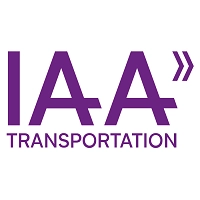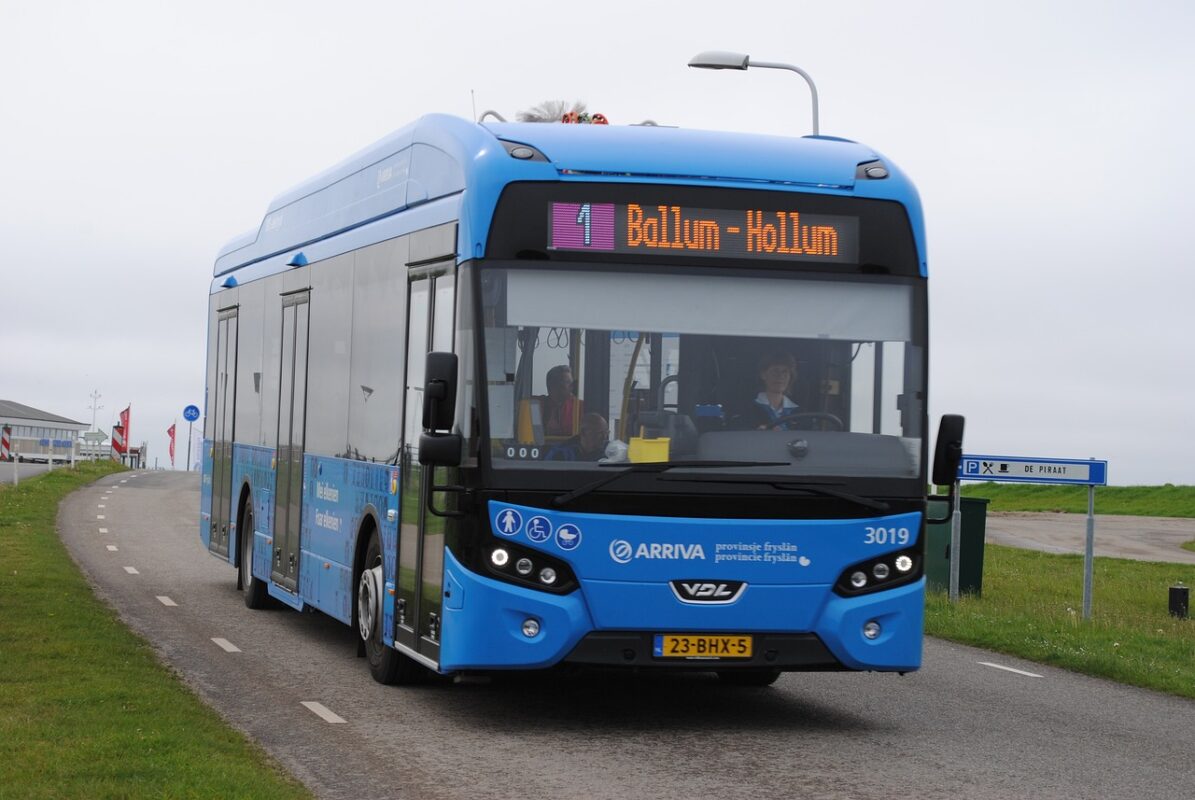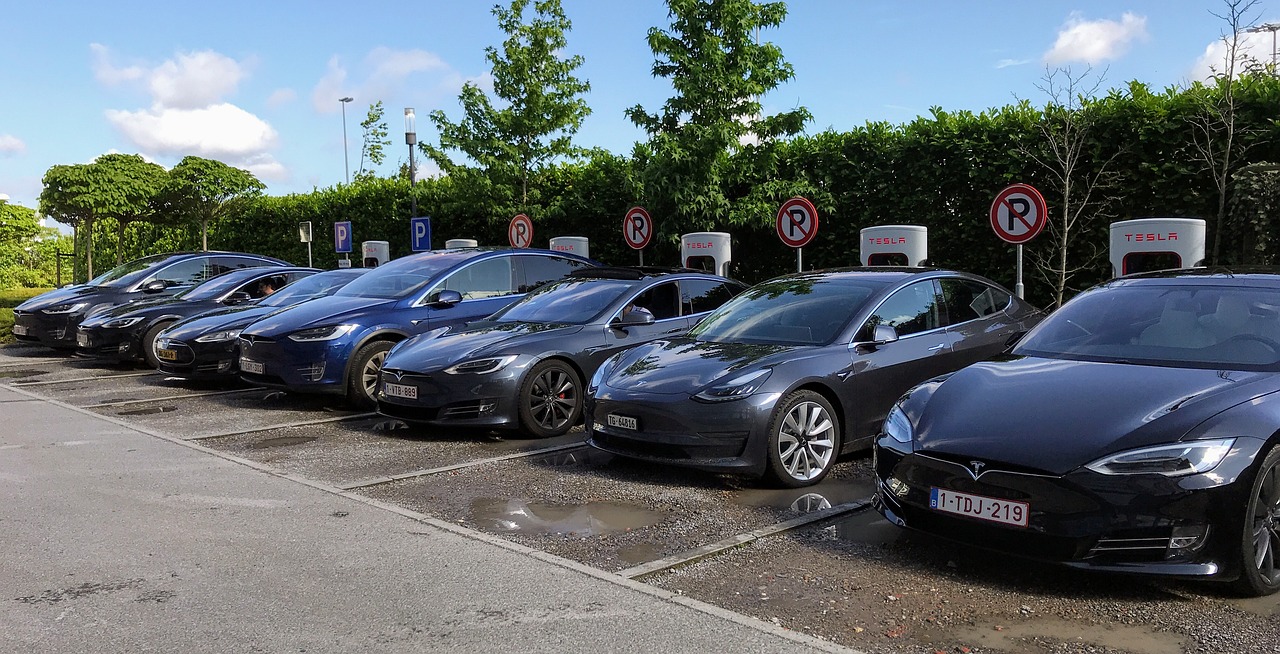
Latest NEWS
Driving the Future: Unveiling the Top 5 Key Trends at IAA Transportation 2024

Electric and Sustainable Vehicles: The Future of Transportation at IAA Transportation 2024

Electric vehicles (EVs) have been gaining popularity in recent years, and this trend is expected to continue at the IAA Transportation 2024. With advancements in battery technology, EVs are becoming more affordable and practical for everyday use. Automakers are investing heavily in research and development to improve the range and charging infrastructure of EVs, making them a viable option for consumers.
Sustainability is another important aspect of the future of transportation, and the IAA Transportation 2024 will showcase a wide range of sustainable vehicles. These vehicles are designed to minimize their impact on the environment by using alternative fuels or reducing emissions. Hydrogen fuel cell vehicles, for example, produce zero emissions and offer a longer range compared to traditional EVs. Automakers are also exploring other sustainable options such as biofuels and solar-powered vehicles.
One of the key advantages of electric and sustainable vehicles is their contribution to reducing air pollution. Traditional internal combustion engine vehicles emit harmful pollutants that contribute to climate change and poor air quality. By transitioning to electric and sustainable vehicles, we can significantly reduce our carbon footprint and improve the quality of the air we breathe.
At the IAA Transportation 2024, visitors can expect to see a wide range of electric and sustainable vehicles on display. From compact city cars to luxury SUVs, automakers are offering a diverse lineup of EVs to cater to different consumer needs. These vehicles are not only environmentally friendly but also offer a smooth and quiet driving experience. With instant torque and responsive acceleration, EVs are proving to be a thrilling alternative to traditional combustion engine vehicles.
In addition to EVs, the IAA Transportation 2024 will also showcase advancements in autonomous driving technology. Self-driving cars have the potential to revolutionize the way we travel, offering increased safety and convenience. Automakers are investing heavily in developing autonomous vehicles that can navigate complex road conditions and interact with other vehicles and pedestrians. The IAA Transportation 2024 will provide a glimpse into the future of autonomous driving, with demonstrations and presentations from leading companies in the field.
As we look ahead to the future of transportation, it is clear that electric and sustainable vehicles will play a crucial role. The IAA Transportation 2024 will be a platform for automakers to showcase their latest innovations in this field. From advancements in battery technology to the development of autonomous driving systems, the future of transportation is exciting and promising. By embracing electric and sustainable vehicles, we can create a cleaner and more sustainable future for generations to come.
Autonomous Driving and Connected Cars: Transforming the Way We Drive at IAA Transportation 2024
The IAA Transportation 2024 event is set to showcase the latest advancements in the automotive industry, with a particular focus on autonomous driving and connected cars. These two trends are transforming the way we drive and are expected to have a significant impact on the future of transportation.
Autonomous driving has been a hot topic in recent years, and it is no surprise that it is taking center stage at IAA Transportation 2024. The development of self-driving cars has come a long way, and we can expect to see some groundbreaking innovations at the event. From fully autonomous vehicles to advanced driver-assistance systems, the possibilities are endless.
One of the key benefits of autonomous driving is increased safety. With self-driving cars, the risk of human error is significantly reduced, leading to fewer accidents on the road. This technology has the potential to save countless lives and revolutionize the way we think about transportation safety.
Connected cars are another trend that is set to make waves at IAA Transportation 2024. These vehicles are equipped with advanced communication systems that allow them to connect with other cars, infrastructure, and even pedestrians. This connectivity opens up a world of possibilities, from real-time traffic updates to personalized entertainment options.
One of the main advantages of connected cars is improved efficiency. These vehicles can communicate with traffic lights and other infrastructure to optimize their routes and reduce congestion. This not only saves time for the driver but also reduces fuel consumption and emissions, making transportation more sustainable.
In addition to safety and efficiency, connected cars also offer enhanced convenience. Imagine being able to remotely control your car’s functions, such as locking and unlocking the doors or adjusting the temperature, from your smartphone. With connected cars, this is no longer a distant dream but a reality that is becoming increasingly common.
Another exciting aspect of autonomous driving and connected cars is the potential for new business models and services. As self-driving cars become more prevalent, we can expect to see a shift towards mobility-as-a-service (MaaS) models. This means that instead of owning a car, people will have access to a fleet of autonomous vehicles that they can summon whenever they need them. This not only reduces the need for parking spaces but also opens up opportunities for new transportation services and revenue streams.
IAA Transportation 2024 is set to be a game-changer for the automotive industry. With autonomous driving and connected cars taking center stage, we can expect to see some groundbreaking innovations that will transform the way we drive. From increased safety and efficiency to enhanced convenience and new business models, these trends have the potential to revolutionize transportation as we know it. So buckle up and get ready for the future of driving!
Mobility as a Service (MaaS) Solutions: Revolutionizing Transportation at IAA Transportation 2024
Mobility as a Service (MaaS) Solutions: Revolutionizing Transportation at IAA Transportation 2024
The world of transportation is rapidly evolving, and the International Automobile Association (IAA) Transportation 2024 event is at the forefront of showcasing the latest trends and innovations. One of the key areas that is set to revolutionize transportation is Mobility as a Service (MaaS) solutions. These solutions aim to provide seamless and convenient transportation options for individuals, while also reducing congestion and emissions.
One of the top trends in MaaS solutions at IAA Transportation 2024 is the integration of various modes of transportation into a single platform. Traditionally, individuals have had to rely on multiple apps or services to plan and book their journeys, whether it be by car, public transport, or bike-sharing. However, MaaS solutions are now bringing all these options together, allowing users to plan and book their entire journey through a single app. This integration not only simplifies the process for users but also encourages the use of more sustainable modes of transportation.
Another trend in MaaS solutions is the rise of on-demand and shared mobility services. With the increasing popularity of ride-hailing services like Uber and Lyft, as well as bike-sharing and scooter-sharing programs, individuals now have more options than ever to get from point A to point B. MaaS solutions are taking advantage of this trend by incorporating these services into their platforms, making it easier for users to access and utilize them. This not only improves convenience but also helps to reduce the number of private vehicles on the road, leading to less congestion and pollution.
Furthermore, MaaS solutions are also focusing on providing personalized and tailored transportation options. Through the use of advanced algorithms and data analytics, these platforms can analyze individual preferences and behavior to offer customized transportation recommendations. For example, if a user prefers to travel by public transport during peak hours, the MaaS solution can suggest the most efficient routes and provide real-time updates on delays or disruptions. This level of personalization not only enhances the user experience but also encourages the use of more sustainable modes of transportation.
In addition to personalized recommendations, MaaS solutions are also incorporating payment integration. Instead of having to carry multiple cards or tickets for different modes of transportation, users can now make seamless payments through the MaaS platform. This not only simplifies the payment process but also provides a more transparent and efficient way of managing transportation expenses. By making payments more convenient, MaaS solutions aim to encourage individuals to choose sustainable transportation options over private vehicles.
Lastly, MaaS solutions are also focusing on improving accessibility for individuals with disabilities or limited mobility. By integrating information on accessible routes, wheelchair-friendly vehicles, and other accessibility features, these platforms aim to ensure that transportation is inclusive for all. This not only improves the quality of life for individuals with disabilities but also promotes a more inclusive and equitable society.
In conclusion, Mobility as a Service (MaaS) solutions are set to revolutionize transportation at IAA Transportation 2024. By integrating various modes of transportation, incorporating on-demand and shared mobility services, providing personalized recommendations, offering seamless payment integration, and improving accessibility, MaaS solutions aim to provide a more convenient, sustainable, and inclusive transportation experience for individuals. As the world continues to embrace these trends, the future of transportation looks promising, with MaaS solutions leading the way towards a more connected and efficient mobility system.
Alternative Fuels and Energy Sources: Shaping the Future of Driving at IAA Transportation 2024
Alternative Fuels and Energy Sources: Shaping the Future of Driving at IAA Transportation 2024
As the world continues to grapple with the challenges of climate change and the need for sustainable solutions, the automotive industry has been at the forefront of developing alternative fuels and energy sources. At the IAA Transportation 2024, the top five key trends in this field were unveiled, showcasing the exciting advancements that are shaping the future of driving.
One of the most prominent trends at the IAA Transportation 2024 was the increasing adoption of electric vehicles (EVs). With advancements in battery technology and the growing availability of charging infrastructure, EVs have become a viable option for many consumers. The event showcased a wide range of electric vehicles, from compact cars to SUVs, demonstrating the industry’s commitment to electrification.
Another key trend that emerged at the IAA Transportation 2024 was the development of hydrogen fuel cell vehicles. Hydrogen fuel cells offer a clean and efficient alternative to traditional combustion engines, as they only emit water vapor. The event featured several hydrogen fuel cell vehicles, highlighting the progress made in this area. While the infrastructure for hydrogen refueling is still limited, the industry is actively working towards expanding it to make hydrogen-powered vehicles more accessible.
Biofuels also took center stage at the IAA Transportation 2024. Derived from renewable sources such as plants and algae, biofuels offer a sustainable alternative to fossil fuels. The event showcased various biofuel options, including ethanol and biodiesel, which can be used in existing combustion engines without significant modifications. The development of advanced biofuels, which have a lower carbon footprint and higher energy density, was also highlighted at the event.
In addition to these alternative fuels, the IAA Transportation 2024 also showcased advancements in solar-powered vehicles. Solar panels integrated into the body of the vehicle can harness the sun’s energy to power the vehicle’s electric motor. While solar-powered vehicles are still in the early stages of development, the event demonstrated the potential of this technology and its contribution to reducing greenhouse gas emissions.
Lastly, the event highlighted the importance of energy efficiency in driving the future of transportation. From lightweight materials to aerodynamic designs, manufacturers are focusing on improving the energy efficiency of vehicles. The IAA Transportation 2024 showcased innovative solutions in this area, such as regenerative braking systems and energy-efficient tires, which can significantly reduce fuel consumption and emissions.
In conclusion, the IAA Transportation 2024 unveiled the top five key trends in alternative fuels and energy sources, showcasing the industry’s commitment to driving the future of transportation in a sustainable manner. From electric vehicles to hydrogen fuel cells, biofuels, solar-powered vehicles, and energy-efficient designs, the event demonstrated the exciting advancements that are shaping the future of driving. As the world continues to prioritize sustainability, these trends will play a crucial role in reducing greenhouse gas emissions and mitigating the impacts of climate change.
Smart Transportation Infrastructure: Enhancing Efficiency and Safety at IAA Transportation 2024
Smart Transportation Infrastructure: Enhancing Efficiency and Safety at IAA Transportation 2024
The International Automobile Exhibition (IAA) Transportation 2024 is set to showcase the latest advancements in the automotive industry. One of the key areas of focus at this event is smart transportation infrastructure, which aims to enhance efficiency and safety on the roads. In this article, we will unveil the top 5 key trends in smart transportation infrastructure that will be showcased at IAA Transportation 2024.
1. Connected Vehicles: One of the most significant trends in smart transportation infrastructure is the rise of connected vehicles. These vehicles are equipped with advanced sensors and communication technologies that allow them to communicate with each other and with the surrounding infrastructure. This connectivity enables real-time data sharing, which can help improve traffic flow, reduce congestion, and enhance safety on the roads.
2. Intelligent Traffic Management Systems: Another key trend at IAA Transportation 2024 is the development of intelligent traffic management systems. These systems use advanced algorithms and artificial intelligence to analyze real-time traffic data and make informed decisions. By optimizing traffic signal timings, rerouting vehicles, and providing real-time traffic updates to drivers, these systems can significantly improve traffic flow and reduce travel times.
3. Smart Parking Solutions: Finding parking spaces in crowded cities can be a major challenge for drivers. At IAA Transportation 2024, smart parking solutions will be showcased to address this issue. These solutions use sensors and data analytics to provide real-time information about available parking spaces. By guiding drivers to vacant parking spots, these solutions can reduce the time spent searching for parking, minimize congestion, and improve overall efficiency.
4. Autonomous Vehicles: The development of autonomous vehicles is another key trend in smart transportation infrastructure. These vehicles have the potential to revolutionize the way we travel by eliminating the need for human drivers. At IAA Transportation 2024, visitors will have the opportunity to witness the latest advancements in autonomous vehicle technology. From self-driving cars to autonomous buses, these vehicles promise to enhance safety, reduce traffic accidents, and increase overall efficiency on the roads.
5. Infrastructure-to-Vehicle Communication: Lastly, IAA Transportation 2024 will showcase the importance of infrastructure-to-vehicle communication. This technology allows vehicles to receive real-time information from the surrounding infrastructure, such as traffic signals, road conditions, and weather updates. By providing drivers with timely and accurate information, infrastructure-to-vehicle communication can help prevent accidents, improve fuel efficiency, and enhance overall safety on the roads.
In conclusion, smart transportation infrastructure is set to play a crucial role in enhancing efficiency and safety on the roads. At IAA Transportation 2024, visitors will have the opportunity to witness the latest advancements in this field. From connected vehicles to intelligent traffic management systems, smart parking solutions, autonomous vehicles, and infrastructure-to-vehicle communication, these trends promise to revolutionize the way we travel. By embracing these innovations, we can create a future where transportation is not only efficient but also safe for all road users.







